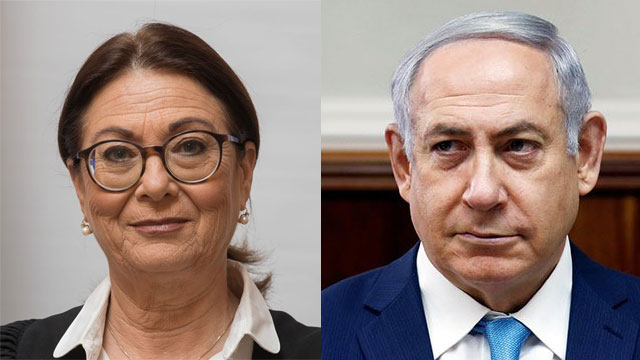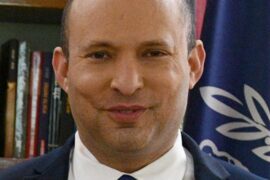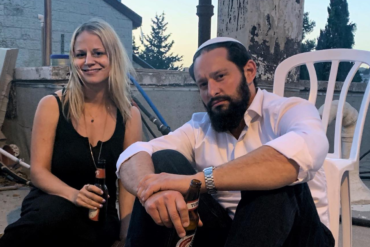A rare meeting between Prime Minister Binyamin Netanyahu (Likud) and Supreme Court President Esther Hayut took place at the prime minister’s Jerusalem office on Sunday.
The meeting was an attempt to reach agreement on enacting the “Override Clause” that would allow the Knesset, under certain conditions, to re-legislate laws that had been struck down as “unconstitutional” by the courts.
Israel’s Supreme Court has in recent decades voided a number of laws passed by the legislature as “unconstitutional.” While Israel lacks an actual constitution, the Knesset has passed a series of Basic Laws that some Israeli jurists, including former Supreme Court President Aharon Barak, have treated as the nation’s de facto constitution.
Since Barak’s ascension over the Supreme Court in the 1990s, it has taken an activist position regarding the judiciary’s role, assuming the right of judicial supremacy and the ability to strike down laws passed by the Knesset and compel the government to adhere to its rulings.
The Bayit Yehudi faction has been pushing an “Override Clause” to the Basic Law: Human Dignity and Liberty, explicitly empowering the Knesset to overrule the Supreme Court and reenact laws nullified by the nation’s judiciary with a simple majority of 61 lawmakers.
While most laws require only a majority of members of Knesset voting at any given time, the clause would require a majority of the full 120 member Knesset.
Justice Minister Ayelet Shaked (Bayit Yehudi) and Deputy Chief Justice Hanan Meltzer also participated in Sunday’s meeting.
According to reports, Hayut ironically argued that the enactment of the clause would constitute “a danger to democracy” in Israel.
While the Israeli press often uses “democracy” as a synonym for westernization in society, Israeli activists critical of the Supreme Court have argued that democracy isn’t a set of values but a system that empowers people to influence the structures they live under.
Due to the fact that Knesset members are elected through a more democratic process than the nation’s judicial branch, disempowering the court would appear to strengthen Israel’s democratic character.
Many political figures and activists have accused the courts of advancing European and American agendas in recent decades, specifically in matters pertaining to the the West Bank and westernization in Israeli society. Critics have attacked the “judicial activism” of Israel’s Supreme Court as being politically motivated and undemocratic.
The prime minister’s office said Sunday following the meeting that all positions were expressed and “there was a thorough and serious discussion.”
The meeting was made possible after Netanyahu accepted the Supreme Court demand to postpone the ministerial committee hearing on the clause by another week, a request that received Justice Minister Shaked’s consent.
Her Bayit Yehudi party, however, announced that a further postponement would not be accepted.





